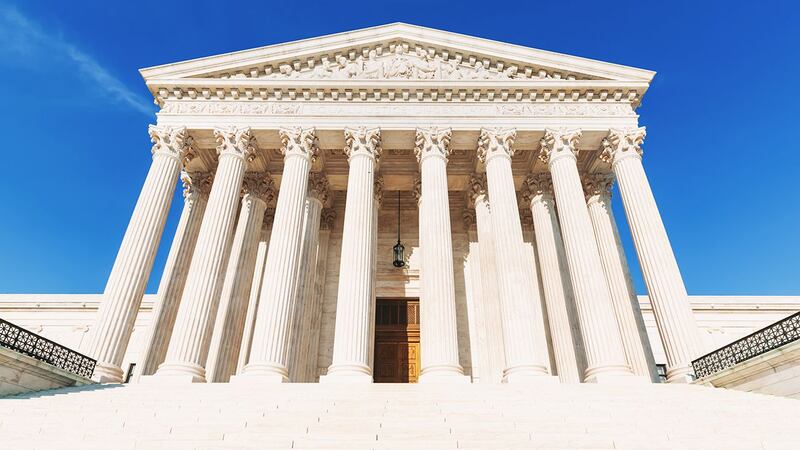WASHINGTON D.C. — The U.S. Supreme Court issued a ruling Friday that affects communities hit hard by the homelessness crisis. It will allow local governments to enforce bans on people experiencing homelessness sleeping outside even if there is not enough shelter space.
>> Perkins restaurants to change name, update restaurants and menus
The case stems from Grants Pass, Oregon where officials fined people for camping and sleeping outside. Advocates argued it was cruel and unusual punishment if there weren’t beds available at shelters.
But the majority of the Justices found these kinds of penalties are not a violation of the Constitution and can continue.
“The Constitution’s Eighth Amendment serves many important functions, but it does not authorize federal judges to wrest those rights and responsibilities from the American people and in their place dictate this Nation’s homelessness policy,” wrote Justice Neil Gorsuch.
“The Supreme Court’s decision today unfortunately allows that to be criminalized and for people to be put in jail for something that is entirely out of their control,” said Jake Faleschini, Justice Program Director at the Alliance for Justice. “This isn’t going to help people. This is just going to make it even worse for the folks that are in that temporary position.”
Republican and Democratic state leaders have warned about the need to be able to clear encampments.
>> 16-year-old drowns in river at Great Smoky Mountains National Park
Earlier this year, Florida was the first state to pass legislation to ban people from sleeping or camping on public property.
“Doing the San Francisco and New York model is not a way to get the job done,” said Gov. Ron DeSantis (R-FL) in March when signing it into law.
The Supreme Court ruling was a 6 to 3 decision. The liberal-leaning Justices disagreed with the decision.
“Sleep is a biological necessity, not a crime,” wrote Justice Sonia Sotomayor in the dissent. “For people with no access to shelter, that punishes them for being homeless. That is unconscionable and unconstitutional. Punishing people for their status is ‘cruel and unusual’ under the Eighth Amendment.”
©2024 Cox Media Group






